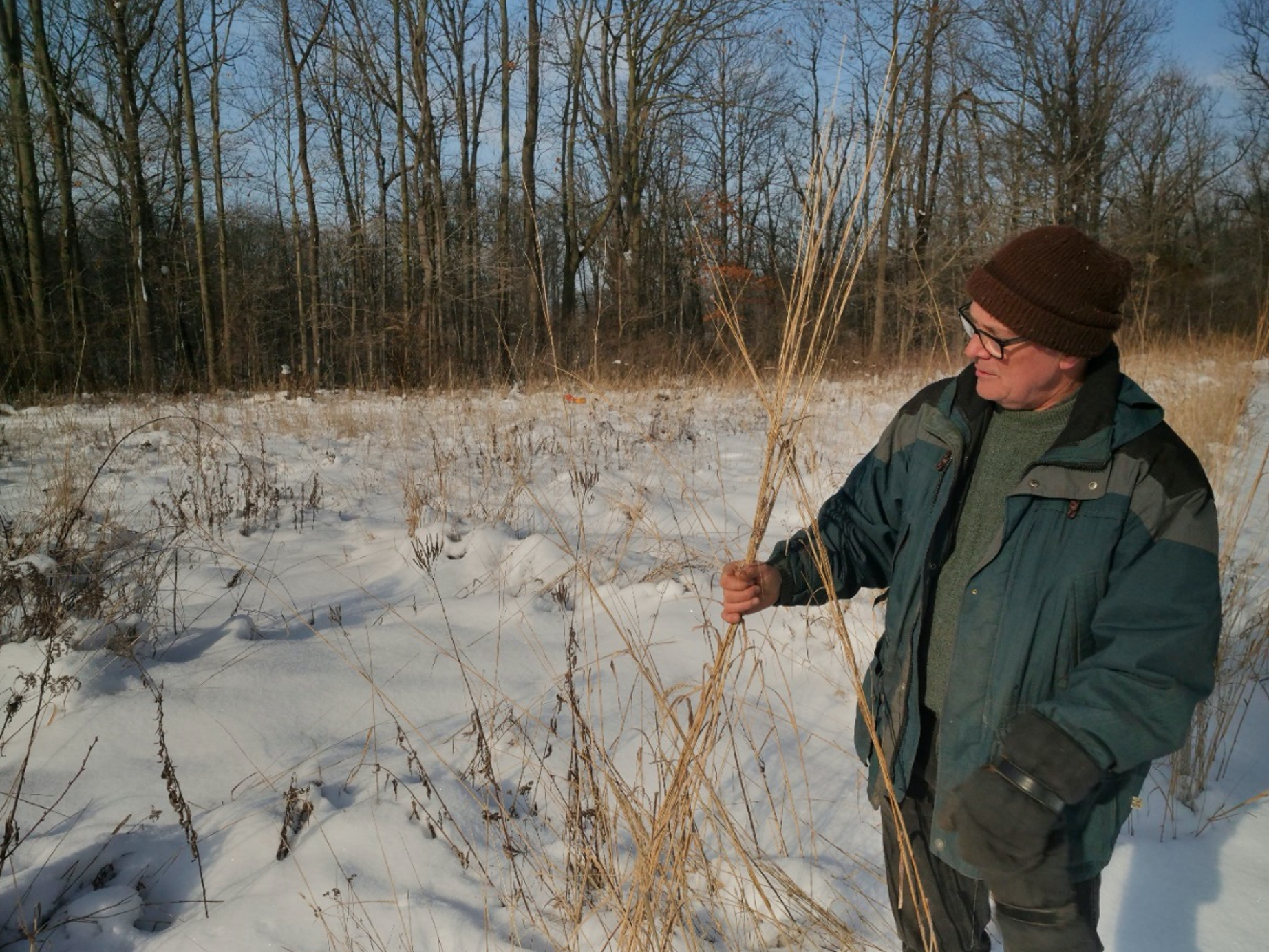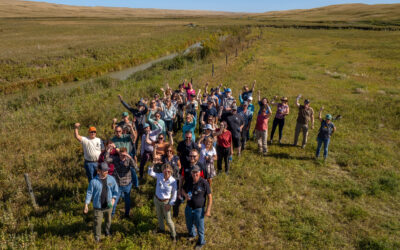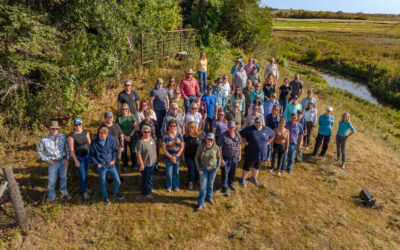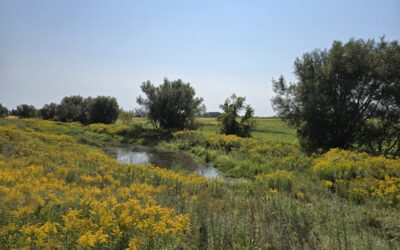ALUS Middlesex participant Phil Moddle incorporates conventional farming, agritourism and environmental stewardship into Arrowwood Farm and Events

Phil Moddle with a white pine seedling on his farm in Middlesex County, Ontario. The sapling is a part of an ALUS tree planting project that will deliver numerous benefits to the environment and the people in the surrounding community over the course of its lifecycle.
Phil Moddle and his family are owners and operators of Arrowwood Farm & Events in Middlesex County, Ontario, and participants in the ALUS Middlesex program. The farm is a multi-functional operation that hosts blueberry picking, sharecropping, events and environmental stewardship projects.
“We were looking for a place in the country and came across this property with an existing blueberry orchard on it,” says Phil of how his family came to make their home at Arrowwood in 2015. “It’s a very beautiful spot. The original blueberries were planted about 1980 by the previous landowners, and in 1999 they made significant changes to include landscaping with an abundance of Carolinian tree plantings. They also built a venue where they could do weddings and host other events. So, it was a good fit for us.”
Phil’s recent tree planting project, undertaken in 2021 with ALUS Middlesex and the Lower Thames Valley Conservation Authority, is part of a broader shared effort funded by the federal government’s 2 Billion Trees commitment. The commitment seeks to put more trees on the landscape to address climate change and to cultivate the multitude of benefits that trees provide to the natural world and to human communities.
“The tree planting is adjacent to a stream feature on our land. Our soil here is not all that dissimilar to other areas, but depending on where you are, you have anywhere from 10 to 20 feet of fine, fluvial sand overlying a clay till,” says Phil. “So, we have a fair bit of erosion of that sand along the stream that runs through our property, called Big Munday Creek. And it has a number of small, seasonal tributaries that feed into it. They are slowly advancing back into the farm fields, as the sand erodes.”
The trees prevent excess sediment and run-off from the landscape entering the creek, thereby improving water quality for the species that inhabit the ecosystem and benefiting downstream communities. Trees are incredibly valuable on the rural landscape, providing a plethora of ecosystem goods and services, like water filtration, erosion control, wildlife habitat and carbon sequestration.
Phil and his family weren’t farmers before they moved to Arrowwood, though his wife, Kathy, did grow up on a farm. Before moving to Arrowwood, Phil was an environmental consultant. His passion and interest in nature and stewardship is a big part of what guided him and his family to live on the land and share its bounty and wonder with a broader community.
“When people come in for weddings or to pick blueberries, they can enjoy walks or explore parts of the property, as well,” says Phil.
This exploration and engagement with the land is an important take away for visitors to Arrowwood.
“The tallgrass prairie plantation is unique,” says Phil. “It’s closer to our venue where there’s agritourism. So, as habitat for threatened species and providing space for biodiversity, it also is a potential conversation point for our customers.”

Phil showcases fallow tallgrass during the winter.
People visiting the farm to pick blueberries or to host their wedding have the opportunity to learn and observe how agriculture and nature are intertwined.
The Moddle family’s conscientious approach to the environment informs this sort of visitor interaction and public education. It also underpins the community-focused work of ALUS Middlesex.
Phil got an early start with ALUS Middlesex, joining the community’s Partnership Advisory Committee when the program launched in 2017. Phil’s been an advocate and participant for the program ever since.
“I think it’s a good program in that it encourages working farms to get involved with environmental projects,” says Phil of ALUS Middlesex. “Things like improving water quality and increasing biodiversity are consistent with my values.”
A key part of ALUS is supporting the up-front costs of environmental projects on rural land and providing ongoing management and maintenance payments to ensure the best outcome for the environment and participating farmers and ranchers. The ALUS projects at Arrowwood allow Phil and his family to showcase the ways that certain land management practices can benefit the environment and support working farms.
“ALUS respects the needs of the landowner to be profitable, to have an operation still succeed economically, but where they can also do their part in being good stewards of the land for future generations,” says Phil.



